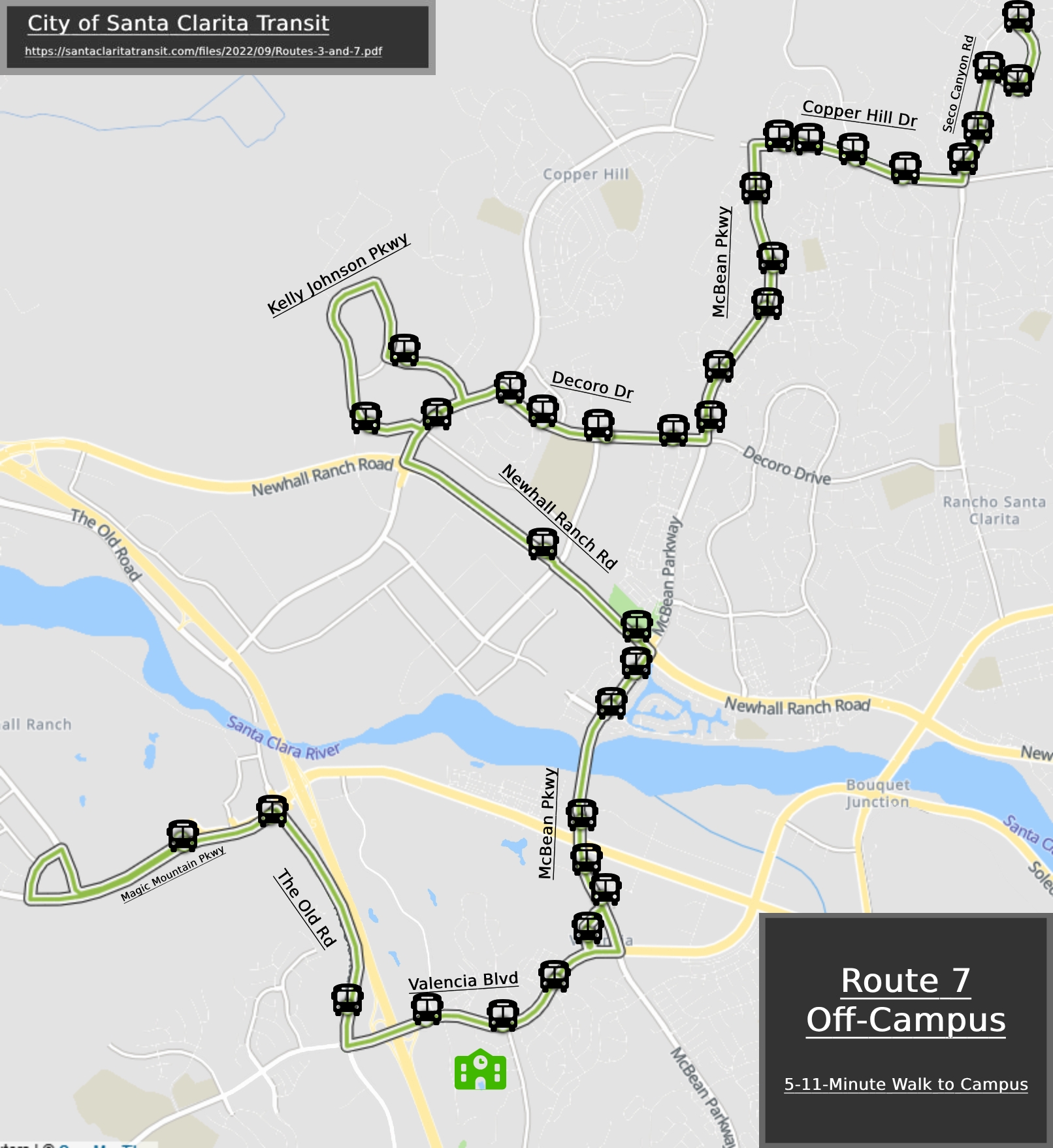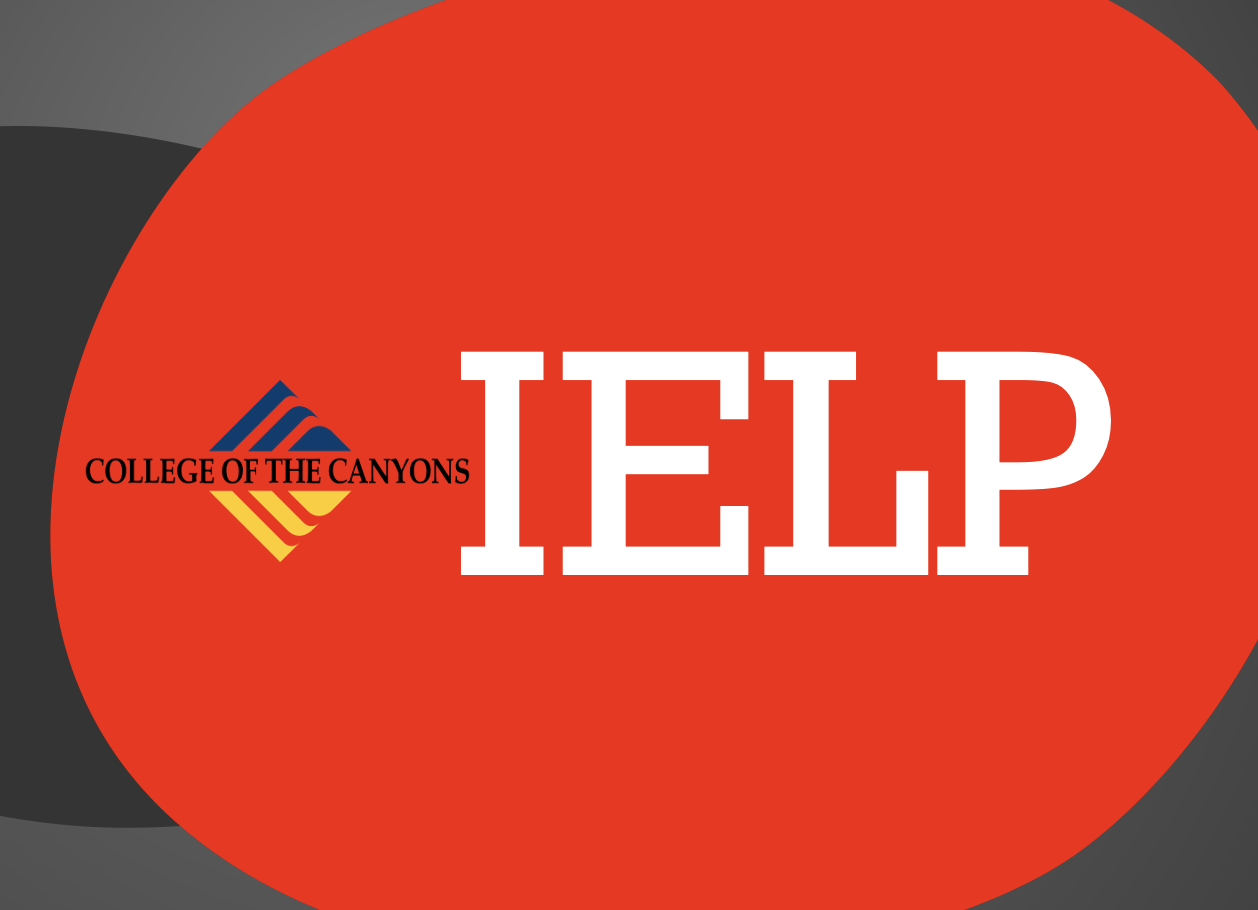International Students
International Students
Pay Your Tuition
Pay your tuition online now, using Flywire - a secure way for international students to pay their tuition.
Apply Now!Want to apply to College of The Canyons as an international student? Learn how today! |
Global Online LearningCOC Global Online Learning (GOL) allows students to begin their university study from their home country by taking College of the Canyons classes online. |
IELPIELP (Intensive English Language Program) is a program for international students to improve their English enough to take American college courses. |
Student Resources
-
-

SEVIS: The Student and Exchange Visitor Information System is a program within U.S. Immigration and Customs Enforcement, which is under the U.S. Department of Homeland Security, to manage foreign students and exchange visitors in the United States.
DSOs: Designated School Officials answer international student questions and guide them through the process of studying in the United States.
I-20 Form: The Form I-20 lists your program start date, 30 days before which you are allowed to enter the United States.
F-1 Visa: F-1 Visas are for students looking to enter a school for academic study with the intent of obtaining a degree, diploma, or certificate.
Continued Attendance: After a student has entered the U.S. with their I-20, they will receive a new "continued attendance" I-20 with a valid travel signature.
Initial Status: The exchange visitor's (EV's) and/or dependent's record has been created and submitted (saved to the SEVIS database), but the EV has not entered the United States and has not reported to the program sponsor.
Change of Status: Providing permission to foreign nationals holding a non-immigrant visa in the U.S. to change status to another nonimmigrant category while in the U.S.
TOFEL: Test of English as a Foreign Language is a standardized test to measure the English language ability of non-native speakers wishing to enroll in English-speaking universities.
Duolingo: The Duolingo English Test is an English proficiency assessment used to evaluate your ability to read, write, speak, and listen to English.
IELTS: The International English Language Testing System is an international standardized test of English language proficiency for non-native English language speakers.
-

Adult Learner: This term typically refers to an older student who usually has experience in the workforce and didn't necessarily attend college right after high school.
Campus: The physical buildings and grounds owned by a college or university.
Career Services: A student resource department that helps students and alumni job-search, develop resumes, give interviews and network.
Cohort: A group of students working through a curriculum together towards the same degree.
College vs. University: Colleges are generally smaller institutions that focus on undergraduate education while universities are typically larger institutions that offer a greater number of graduate degree options.
Commencement: A formal graduation ceremony that celebrates recent graduates of the institution with their family and friends.
Continuing Education: This typically refers to part-time formal education for working adults. Oftentimes professional certifications may require continuing education credit-though not all necessarily require college coursework.
Dormitories: Campus housing where full-time students live within close distance of the academic buildings.
Homestay: An accommodation made available to international students coming to study in the United States.
First-Generation Student: A college student who is the first in their family to go to college.
Gainful Employment: A regulation that requires for-profit college programs to prepare graduates for gainful employment in a recognized occupation in order to receive federal funding.
Higher Education: Refers to any formal schooling after high school.
Orientation: Time at the beginning of a school year that serves as a training period for new students. Typically includes activities or courses intended to help students get to know the institution and how to use available resources.
Post-Secondary: Any education, whether degree-seeking or not, pursued after high school.
Private College vs. Public College: Public colleges and universities are funded by state governments while private colleges and universities are not publicly-owned, often relying on tuition payments and private contributions to operate.
Registrar: A specialist tasked with handling several administrative and logistical areas of academia. The registrar's office is responsible for many administrative academic duties like registering students for classes, preparing student transcripts, preparing class schedules and analyzing enrollment statistics.
Student Handbook: A student's primary resource on their school's academic policies, disciplinary procures, student expectations and information about financial aid and other student services.
Terms vs. Quarters vs. Semesters: The academic year is often divided into terms-most commonly in the form of semesters or quarters. Semesters typically include a fall and spring semester and summer session that may be shorter. Quarters divide the year into four terms-each usually 10 or 11 weeks.
Traditional vs. Nontraditional Student: Traditional students generally attend college right after high school, are financially dependent on parents and attend full-time. While there's no set-in stone definition, "nontraditional student" typically refers to adult students (usually 25 or older) who either work full time, are financially independent, have children or attend college part-time.
Virtual Career Fair: An online career fair that allows students to network with employers and career development professionals as well as attend career workshops all free of charge.
Work-Study Program: Work-study programs help college students with financial need get part-time jobs to help pay for day-to-day expenses and tuition payments. Work-study jobs are federally- or state-funded.
-

Academic Advisor: Academic advisors are staff members assigned to students in their department. They help students choose majors and minors, design a course of study and help ensure students fulfill graduation requirements.
Accelerated Program: Programs designed to help students graduate sooner. Accelerated programs often include more stringent admission requirements and summer courses.
Add/Drop Period: Time frame when students can drop or add courses to their course load without consequences, including incomplete marks on their transcript.
Adjunct Faculty/Professor: Adjunct professors work as independent contractors who teach a limited number of classes, as opposed to full-time faculty.
Associate's Degree: Undergraduate degree that generally requires two years of full-time study.
Audit: When taking an "audit" course, students attend a class they are interested in without being required to complete assignments or take tests-giving them a chance to learn the material but not for credit.
Bachelor's Degree: Undergraduate degree that generally requires four years of full-time study. Students must declare a major in a particular field of study and choose a Bachelor of Arts or Bachelor of Science degree path.
Competency-Based Education (CBE): Method of instruction and evaluation based more on the students' mastery of the material than time spent in seat. CBE allows students to show what they know either from independent learning, classroom learning or experiences in the field.
Certification: A non-degree credential that proves knowledge or skill in a specific area. Valued credentials vary by industry and job title.
Class Rank: Refers to a student's standing in comparison with their classmates. It's often determined by grade point averages and is expressed as a percentile.
Clinical Education: Often referred to as clinicals, these programs allow students to practice their skills under supervision of a practitioner. Clinical education is most common in the healthcare field.
Course Catalog: A college publication that describes academic programs, their majors and minors, and required courses and their contents.
Core Courses: Include fundamental classes like English, math, general science and history that provide a foundation for major-specific classes. The exact class requirements may vary depending on your major. Core courses may also be referred to as general education courses.
Course Load: This refers to the total amount of courses a student is taking per term.
Credit for Prior Learning: College credit granted to students who can demonstrate knowledge gained outside of a traditional college setting that is used to satisfy course requirements. Examples can include work and life experience, independent study or industry certifications.
Credits: A measure of a class's time based on how many hours students spend in class, but specific numbers largely depend on the institution.
Curriculum: The knowledge, skills, lectures, assignments, tests and presentations that make up a course. It may also refer more broadly to the courses that make up a major or academic program.
Department: Academic division specializing in an area of study like Nursing, English, Engineering or Biology.
Department Chair: Educator assigned to manage an academic department. They unite the department and act as a liaison between the department and college administration.
Didactic Learning: This teaching method focuses on improving students' foundational knowledge one lesson at a time with teacher-directed lessons.
Dissertation: The completed thesis of a doctoral student. A long document of research and findings required to earn a doctorate.
Doctoral Degree: The most advanced academic degree in most fields. Provides the graduate a high level of expertise and greater options for research, writing, teaching and management within their specialty.
Electives: Classes students choose to fulfill a general education requirement or just because they're interested in a topic outside of their major's core courses.
Faculty: Academic staff including professors, both full-time and adjunct.
Final Exam: Test taken at the end of a course that usually includes subject matter from the entire course.
General Education Courses: Curriculum that creates the foundation of an undergraduate degree. It generally includes lower-level courses in English, Mathematics, Natural Sciences and Social Sciences.
Grade Point Average (GPA): Represents the average of a student's final grades in all their courses. It's calculated by adding the final grades divided by the number of credit hours, though some classes may be weighted or measured on a different scale.
Grading Scale: System in which letter grades are awarded a grade point or number to help calculate GPA.
Hybrid Degree: Also called a blended degree, hybrid programs combine traditional learning on campus with online components.
Internship vs. Externship: Both are experience building opportunities for students and the terms are often used interchangeably. That said, internships can take the form of paid opportunities to work in their fields in a low-level role for an employer. Externships typically aren't paid, are shorter and are often a form of job shadowing. For example, student nurses' complete clinical externships under the supervision of established nurses.
Lecture: Oral presentation given by a professor to educate students. Sometimes this can refer to a class format that doesn't require lab-work hours.
Liberal Arts: Interdisciplinary study of humanities, social and natural sciences meant to give students a broad spectrum of knowledge.
Matriculate: A matriculated student is admitted, registered for classes and in good academic standing at a college or university.
Master's Degree: A graduate-level degree pursued after completing a bachelor's degree program. A master's degree requires a year and a half to two years of full-time study and a high-level of mastery in a specific field at the completion of the program.
Midterm: An exam given approximately halfway through a course term that generally covers all lecture, reading and discussion material presented so far.
Minor: A secondary focus meant to add to the value to the student's major. A minor consists of the lower-level courses required for a major in the same discipline. For example a Business major with a minor in Spanish will be required to complete a certain number of lower-level Spanish courses-which are typically the same lower-level Spanish courses as those pursuing it as a major.
Pass-Fail Course: Instead of receiving a letter grade, students receive either a P or F on their transcript. Requirements for passing will vary depending on the course.
Plagiarism: Taking credit for someone else's work as your own including copying words, sentence structure or ideas. Plagiarism has very grave consequences in higher education.
Postgraduate Education: Includes higher education completed after an undergraduate degree. This includes master's degrees and doctorate degrees.
Practicum: Practical application of theory learned in the classroom. Often a requirement for programs in Education, Social Work or other clinician fields.
Prerequisites: Courses required to take more advanced courses or apply to a program.
Probation: Academic probation means a student has fallen from good standing status and is at risk of being dismissed from the university. Institutions measure academic standing by GPA and courses passed. Policies regarding this will vary depending on the institution.
Professional Certificate: Certification earned outside of an academic degree program to increase specific skills or knowledge to help keep professionals current on industry trends, technology and other topics.
Programmatic Accreditation: Accreditation granted to academic programs, departments or entire schools within a university used as an independent validation of academic quality and is often tied to professional licensure exam requirements.
Registration: Process of reserving a spot in specific classes for enrolled students.
Seminar Course: A course based on reading, research and group discussion. Seminar courses are typically smaller, led by professors and cover advanced topics.
Synchronous Learning: Online classroom format where students learn together at the same time and can engage with classmates and instructors via chat rooms and video conferencing.
Thesis: An extensive research paper created as part of an academic program-typically at the graduate degree level.
Transcript: Official record of courses taken and grades earned at a given institution.
Transfer Credits: Course credits carried over from one institution to another.
Tutors: A more experienced student or teacher who offers one-and-one academic help usually in a specific subject.
Undecided or Undeclared: A student enrolled in courses but has not yet declared a major.
Waitlist: A term commonly seen during registration periods. Students hoping to enroll in a full class can opt to be placed on a waitlist. This essentially saves a place in line in case spots open up from registered students dropping or changing plans.
Withdraw: To drop a class after the add/drop grace period. Withdrawing often means receiving a W on your transcript.
-

Assistantship: Most common at graduate level, assistantships give students the opportunity to earn tuition reimbursement by working for faculty members in their area of study.
Employer Education Assistance Benefit: A benefit some employers offer that may cover some or all of student education expenses. Details will vary depending on employer-some may have stipulations to remain eligible for the benefit.
FASFA: Stands for Free Application for Federal Student Aid. A document prospective students complete to determine eligibility for federal loans and grants.
Federal Grants vs. State Grants: Grants are need-based forms of financial aid that do not need to be repaid. Federal grants are awarded through the FASFA. State grants are awarded through the student's home state and usually have different eligibility requirements than that of the FASFA.
Income-Driven Repayment Plan: A loan repayment plan where monthly payments are based on the bower's income and number of dependents.
Net Price: Calculated by taking the "sticker price" for tuition, room and board and other fees, and subtracting any scholarships and grants the student is receiving.
Room and Board: Term for charges stemming from on-campus food services and housing.
Scholarship: An award given by a college, university or outside institution to help a student pay for tuition or day-to-day expenses. Criteria varies depending on individual scholarships.
Stafford Loan: A direct federal loan with fixed interest rates.
Subscription-Based Pricing: As opposed to per-credit pricing, subscription-based pricing allows students to take as many courses as they can in a set period of time, usually per semester.
Subsidized vs. Unsubsidized Loan: If a student receives a subsidized loan, the U.S Department of Education pays all interest accrued during school, the 6-month grace period and deferment. Students with unsubsidized loans must pay interest either while in school or have the accrued interest added to the principal loan balance.
Tuition: The core price for college classes. Tuition may be listed as a flat rate for a range of credits, usually 12-18, or priced per credit.
-

ACT: The American College Test is a standardized test that estimates a student's readiness for college coursework. Either the ACT or SAT is required for many college and university applications-but it's not a universal requirement.
AP Classes: Advanced Placement courses are college-level courses taught in high school. Scoring well on the AP exam can mean receiving credit for introductory college courses.
Common Application: A platform that allows students to apply to almost 900 schools in a streamlined way.
Early Action vs. Early Decision: Both early action and early decision allow college applicants to apply earlier and find out the results sooner. Generally, students can apply to as many schools as they'd like with early action. But if you apply early decision and are accepted, you must enroll in that school.
Entrance Requirements: Also called admission requirements, many colleges require applicants to submit an application, transcripts, and standardized test scores among other materials. Not to be confused with prerequisites.
GRE: The Graduate Record Examinations is the most common standardized test required to apply for graduate programs.
Placement Test: Some colleges administer placement tests in subjects like math and English to check the academic skills of new students so they can properly place them in the right courses.
Priority Date: The date by which prospective students must submit their applications to be most strongly considered, usually for admissions and scholarships.
PSAT: The Preliminary Scholastic Aptitude Test acts as both a practice test for students who will be taking the SAT for college admissions and as a way for the Collage Board to determine National Merit Scholarship Finalists.
Regular Decision: The most common timeline for college admissions. For regular decision, most schools require prospective students to apply by early January so applicants can hear back by April 1st.
Rolling Admission: Admissions departments who work on a rolling deadline evaluate applications as they receive them instead of waiting till a deadline. Students tend to hear back within 4-6 weeks.
SAT: The Scholastic Aptitude Test is a standardized test that measures college preparedness. Either the ACT or SAT is required for many colleges' and universities' applications.
TOEFL: The Test of English as a Foreign Language is the standardized test for non-native speakers of English applying to American colleges and universities among other institutions.
Waitlisted: Admissions status that is neither an offer nor rejection. Waitlisted students may be accepted to the college or university at a later time.
-
-
College of the Canyons Board of Directors Policy #509 requires international students who hold I-20s issued by College of the Canyons to obtain health insurance. International students are required to present proof of health insurance before they begin their classes. Coverage for the duration of the school semester through the beginning of the following semester is required. Please note that travel insurance is not a valid form of insurance for long term study in the United States.
Evidence of health insurance coverage must include a start and end date. Deviations from this requirement may only be approved by the Director and Assistant Director of ISP. International students may obtain valid insurance from their home place of origin instead of purchasing group insurance. They may also obtain coverage from U.S. providers. Students may either seek out a provider themselves, or purchase the pre-approved policy offered by theLane Lewis Agency.
-
College of the Canyons does not have dormitories, therefore students may not live on campus. At ISP we try to facilitate contact between prospective students and housing providers as a service to both. Any agreement regarding housing or related services shall be between the student and the housing provider and not between either party and the International Services and Programs and/or College of the Canyons. ISP and/or College of the Canyons are in no way liable to either party regarding performance of respective obligations under any agreement.
The District seeks to guarantee equal human rights for the student body of College of the Canyons. The District encourages that housing providers ensure that equal opportunities shall be afforded to all students.
There are many different living options in Santa Clarita. Here are some of the places to check out.
Andy's Homestay International
Email: homestayscv@yahoo.com
http://homestayscv.com
Phone: (661) 644-9446CORT Furniture Rental - CORT can furnish your apartment when you study in the USA - no moving trucks, no hassle! CORT will do all the heavy lifting for you! Contact CORT Furniture today
https://go.cort.com/CORTCollegeofCanyonStudent Room Stay
https://studentroomstay.com/college-of-the-canyons -
Santa Clarita Transit Bus Routes & Schedules Trip Planner Tool to Find Best Bus Route On-Campus Bus Routes


Off-Campus Bus Routes



-
If you are looking to have a non-US transcript or credential translated and evaluated, COC requires students to use a NACES approved service. IEE: Foreign Credential Evaluations is a NACES approved service that can provide students with official translations of foreign credentials.
Please visit IEE's website at https://myiee.org/university/college-of-the-canyons for international credential evaluation specifically for COC students.
COC criteria for international transcript translations:
- Translations must be in English
- Translations must be from a current NACES-agency member at the time of evaluation
- Includes detailed, course-by-course evaluation
- Includes grades and units for each course
- Must distinguish lower division and upper division units
- Must state the U.S. equivalency of credential
*For questions about Islamic specific considerations including housing, dietary restrictions, prayer accommodations, and mosque communities, please contact us at mohammad.asad@canyons.edu.
 |
Chinese Language Webpage: https://www.cncoc.net/china |
Student FAQ (Frequently Asked Questions)
-
What's the first step to applying as an international student?
The first step to applying as an international student is sending an email to ISP@canyons.edu . You will receive an email back with what documents are required for admission.
When do I get my I-20?
After all the required documents are submitted and reviewed the international office will issue an acceptance letter and I-20 within 2-3 business days.
When/how do I get my classes?
You will meet with an academic advisor in person or online. You will discuss the classes that will make you successful in achieving your academic goals in accordance with your major.
When do I get a student ID number?
Upon receiving your acceptance letter. Your student ID number will be clearly marked on your acceptance letter. You will also receive instructions via email on how to set up your school account.
What documents do I need to be accepted to COC?
You can find all the required documents needed for acceptance HERE.
I have my student ID now what?
- Create My Canyons account with your student ID number. Go to My Canyons.
- Finish COC Online Orientation. You will see the icon in My Canyons once you create your account.
When do I pay money?
You don't pay any money to the college until you register for your classes. Once you register for classes you must pay tuition the same day.
-
What is IELP?
IELP is our Intensive English Language Program designed for students whose ultimate goal is to master college level English to prepare for degree courses.
When do IELP classes occur?
They occur in 8 week sessions throughout the year. Classes generally take place Monday through Friday starting at 9:00 am.
How long does the IELP program last?
Most students are expected to complete the program in two or four 8-week sessions, depending on their starting level. The maximum length of the program is one year.
How is my level of English tested before and after IELP?
It is tested with the EFSET Plus English test in person at College of the Canyons before your first session. You are then retested during the last week of the session to evaluate your English comprehension.
Can I only enroll in IELP Writing or IELP Speaking?
No, the IELP subjects are designed to complement each other and to provide IELP students with a full course load.
Do I earn college units with IELP courses?
No IELP courses are non-credit classes, however, IELP students are gaining the essential academic English skills toward their goal of an associate degree or associate degree for transfer.
-
How do I prepare to transfer?
To prepare to transfer, it is recommended that you meet with an advisor that can help you understand your educational plan and to assist with selecting the right classes for your major. Creating a plan with an advisor will help you stay on track towards transferring.
How long does it take to transfer?
There are various factors that influence one's length of time prior to transfer such as major, level of English, etc. To create the best education plan that matches your desired goals, it is best to meet with a counselor one-on-one.
How does Summer and Winter classes impact my transfer?
Summer and Winter courses are great for students who wish to expedite their transfer to another university. If you are looking to fast-track your transfer, then Summer and Winter classes can help.
Can I transfer in units from a college from my home country?
While it is possible to transfer in units, a student would need to first have their units evaluated by a NACES approved translation service (link). Once a student receives their results, they would need to make an appointment with a counselor to go over the next steps.
-
What student clubs can I join?
Student Clubs change every semester. If you don't find a club the meets you interest, then you can create one! Student Development has a full list of clubs. For example, Global Citizens Association was started by international students. View their Instagram @coc_GC
What is Associated Student Government (ASG)?
ASG is the student organization which represents all students at College of the Canyons. The organization's focus is on serving students with the goal of improving the student experience at COC, through advocacy and empowerment. International students can apply to be part of ASG!
Can International Students volunteer?
What better way to get involved in campus life than participating as an events volunteer? Join us as a volunteer in facilitating community and student oriented events on campus. Get engaged in campus activity. Be part of amazing events that support great causes, student life, community initiatives, and enrich your experience. Get Involved and Jump into action, apply online!
How do I contact my professor?
Professors will give you their contact information on the first day of class and in the syllabus. Make sure you take note of their office hours. Professors will have designated days and times where you can ask questions in person.
-
How do I know which classes to take to complete my Major?
Following the correct General Education Requirements along with the Major Requirements will help guide you towards completing your degree. Meeting with a counselor will also help you identify the right classes for you.
How do I know which classes will transfer to the University I wish to transfer to?
Meeting with your ISP Advisor will help you understand your options for transfer.
How do I know which major will lead me to my career?
Meeting with an ISP Advisor will help you discover which major aligns with your career path.
What GPA do I need to transfer to UCLA or Berkeley?
This depends on your major and contributing factors; it may also vary each year.
What University is best to align with my Major?
Using Academic tools, your ISP Academic Advising Team will help you find the best fit for your Transfer.
     |
isp@canyons.edu +1 (661) 362-3580 |





